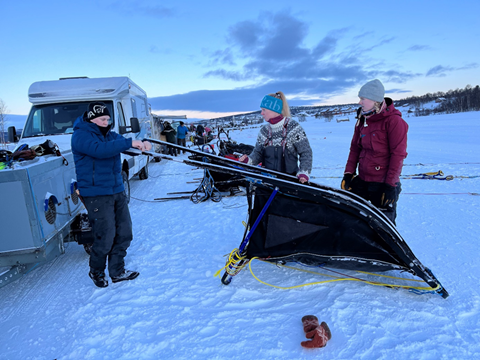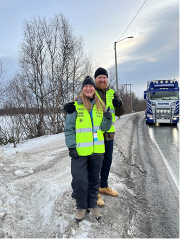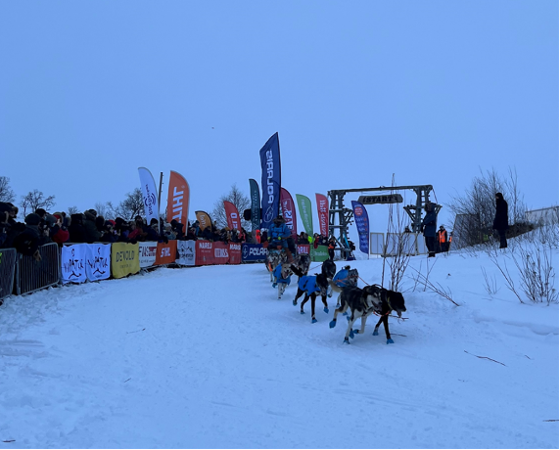Dog Sledding Events on the premises of local communities – people, dogs, and nature?
By Kari Jæger

In many places there has been a shift in tourism from before COVID-19, in how avoiding too much tourism, to how re-starting tourism with COVID-19 would be possible (Jóhannesson et al., 2022). It has been both a global and local discussion, on what the impacts on tourism would be in the long run. For many, the crisis that is brought to tourism, has also offered opportunities to re-consider tourism development in the Arctic, an opportunity, which also goes for the event’s future role.
The two Norwegian dogsledding events investigated here are Femundløpet, that was started in 1990 at Røros, and Finnmarksløpet, that was started in Alta in 1981. These events are both created through networks internal in the dogsledding societies in Norway, and through the local communities the events are located and staged. Those involved in the core activities in Femundløpet and Finnmarksløpet include dogsled drivers - both national and international, locals and visitors, their handlers, and volunteers.


Fieldwork dogsledding events
Last winter the first part of the fieldwork was conducted in February and March 2022, related to the two dogsledding events, Femundløpet at Røros, and Finnmarksløpet in Alta. A second part of fieldwork will be conducted, related to the two dogsledding events in February and March 2023. The aim of the study is to better understand how the two events have been influencing, and are being influenced related to the participants, their role in the local societies, local culture, the dogs, and within the use of rural nature landscapes.

The study will further have a special focus on the role the two dogsledding events have to the potential emerging of tourism through the ‘destinization of place’ (Granås, 2018). The relevance of research on sports events is pointed out by Herbold, Thees & Philipp (2020), describing the local community as a source of an authentic experience, for the sport tourists, with the importance of local engagement, in sustainable and long-term local development. This also related to identity-based development of new touristic products.
The research is still in a startup phase, and I aim to bring new knowledge related to the different areas mentioned above. The findings so far have been gathered through field conversations, observations, interviews, individual and group dialogues.
References
Granås, B. (2018). Destinizing Finnmark: Place making through dogsledding. Annals of Tourism Research. Vol. 72, pp. 48-57.
Herbold, V., Thees, H. and Philipp, J. (2020). The Host Community and Its Role in Sports Tourism—Exploring an Emerging Research Field. Chair of Tourism, Center for Entrepreneurship, Catholic University of Eichstaett-Ingolstadt, 85072 Eichstätt, Germany.
Jóhannesson G.T., Welling, J., Müller,D.K., Lundmark, L., Nilsson, R.O., Barre de la, S., Granås, B., Kvidal-Røvik, T., Rantala, O., Tervo-Kankare, K., Maher, P., (2022). Arctic Tourism in Times of Change Uncertain Futures – From Overtourism to Re-starting Tourism. https://pub.norden.org/temanord2022-516
Quinn, B. and Ryan, T. (2018). Events, social connections, place identities and extended families, Journal of Policy Research in Tourism, Leisure and Events, Published online April 2018.
Richards, G. and Jarman, D. (2021). Events as platforms, networks, and communities. Event Management, Vol. 25, pp. 1-7.